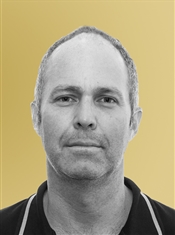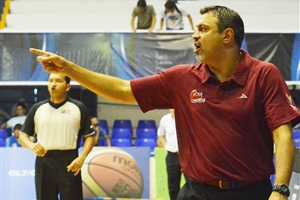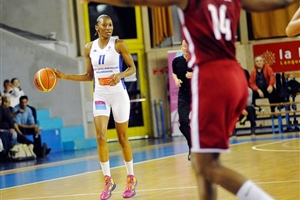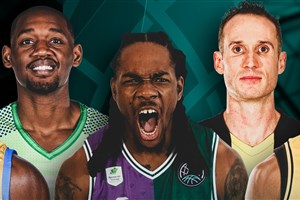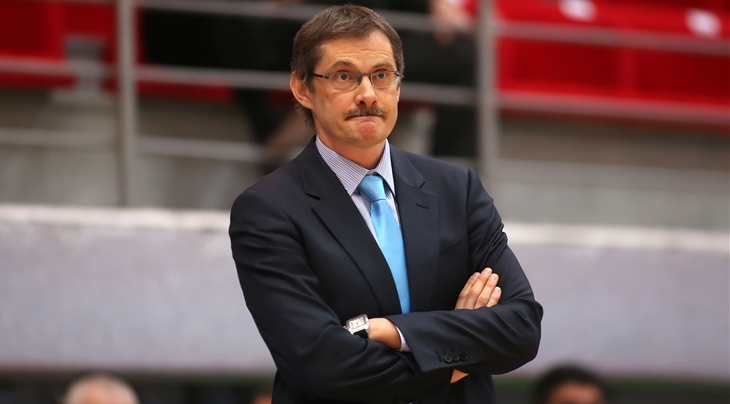
Sergey Bazarevich proving he's a winner
VALENCIA (Jeff Taylor's Eurovision) - I'm going to throw something out there.
The best coach in Russia right now may be the one that a lot of people don't know that much about.
He is Sergey Bazarevich, and he's lived and breathed basketball for the last 35 years.
In Russia, of course they know him but outside? Not as many because he has not yet held the reins of CSKA Moscow or coached in the Euroleague.
What he has done, especially of late, is win.
Сергей Базаревич: "Я надеюсь, эта игра показывает всем, что мы растем как команда". http://t.co/kZdOeSIwYQ pic.twitter.com/gLaxOn6eqd
— PBC LOKOMOTIV KUBAN (@lokobasket) February 11, 2015
I saw him in action recently, at Valencia Basket. Bazarevich steered Locomotiv to their 16th victory in as many Eurocup games this season.
To keep that unbeaten record intact against a wounded lion like Valencia, a team that had only recently parted with the coach (Velimir Perasovic) who led them to EuroCup glory the year before, was asking a lot.
Bazarevich kept his cool after his team fell behind by 13. He remained patient and made all the right decisions, including on his team's last possession when he put the ball in Derrick Brown's hands and let him score on a tough drive to the basket.
A wonderful game lost by just a shot. By this shot, congrats @lokobasket (89-90) pic.twitter.com/oTJYCwaQWt
— Valencia Basket Club (@valenciabasket) February 11, 2015
16-0!
Bazarevich is a player-turned-coach, a 49-year-old Moscow native.
He started his playing career in Russia but ended up competing in Turkey, Spain, Italy and briefly in the NBA with the Atlanta Hawks two decades ago.
Bazarevich has been a coach in his homeland since 2001, when he was a player/coach at Dynamo Moscow.
I wanted to get his opinion on a few things so spoke to him after Lokomotiv's narrow win at Valencia.
"Coach," I asked, "is the basketball we see today as good as it was when you were a player?"
"I think the level of Europe is better," he replied, "but the level in the NBA is worse. But it's understandable. There were less teams then, so less players, the competition (for roster spots) was bigger. The rules are different. Now, there is no defense. Back then, it was real tough."
So you don't think they play defense in the NBA now?
"No, it's a joke," he said.
"Okay, (not) until the playoffs. Maybe some teams (do). But it's understandable.
"They play and they don't practice. Even if your high-level players don't practice, you lose the execution."
How has the basketball changed in Russia?
"Back then, there were not so many foreigners," he said.
"Also, when I was a player, to go abroad was an event.
"We were so happy just to go to Spain to buy something.
"Then came the time when there was no money and everyone had to leave and the whole national team played (for clubs) abroad.
"Now, nobody plays abroad, except for those in the NBA. The money (then) came to Russia. So it’s interesting to go through this."
More money in Russian basketball is not necessarily all good.
"It’s tougher maybe for Russian players because the competition (for playing time, roster spots) is bigger," he said.
"I started when I was 18 but you can't find an 18-year-old player on a roster now.
"This isn't good for Russian basketball because everyone spends the money and wants an immediate result.
"It's tough for the coaches because if you don't do well, you're out."
All coaches have goals.
Is Bazarevich's goal to coach Russia?
"I was close to this," he reminded me.
Bazarevich lost out to Evgeny Pashutin when Russia named their coach for the EuroBasket 2015 qualifying campaign.
I think he would be a good one. He certainly had a feel for the international game as a player.
At the 1994 FIBA Basketball World Cup, Bazarevich was named to the All-Tournament Team after Russia's second-place finish.
If Russia's national team would not get his competitive juices flowing at a different level, then what would?
"I want to coach a Euroleague team," Bazarevich said.
"I have more fun coaching a club. National team? Yes, but I like the work, when you put the work in and get something. With the club, you put the work in but in the national team, you just prepare them for six, seven weeks and play."
Bazarevich does think that Russia need to have a good national team to boost the game in the country.
"Yes, it’s really important," he said.
Russia went from bronze medal winners at the Olympics to missing the 2014 World Cup.
Here's another reason why Bazarevich is good at his job.
He can identify talent, Russian talent.
As the youth team coach at CSKA Moscow, he convinced the club to sign Alexey Shved.
Bazarevich is disappointed that Schved, who was Russia's leading scorer at EuroBasket 2013, hasn't been a big hit in America.
"Shved is an NBA player," Bazarevich insisted, "if someone tells him exactly what to do on the floor. He is better with the ball than 80% of the players in the NBA. But he just needs to find the right situation."
After beginning his career in Minnesota, Shved was traded last August to Philadelphia but was then dealt to Houston in a December trade.
He barely played for coach Kevin McHale.
The 26-year-old joined the woeful New York Knicks on 19 February and has reminded everyone in the the team's last three outings that he has some skill, averaging 12.3 points in almost 20 minutes per contest.
Shved has also had an embarrassing moment.
In the team's win over Detroit on Friday, he lost control of the ball on a drive and it flew over the backboard, a player that has since gone viral.
The 2015 NY Knicks https://t.co/l2wCKds121 http://t.co/jEEcnVBiRG
— SC Top 10 Plays (@SCTop10PIays) February 28, 2015
What is the answer for Shved?
I saw him (Shved) in the summer at Las Vegas and told him him what he needs to fix - his game without the ball - Bazarevich
"They (NBA teams) see him like a two man," Bazarevich said. "He is not a shooting guard, but a creator. But he's very good at the two if he creates. Not necessarily a scoring point guard."
Hopefully the move to New York will end up being a good one for Shved, who clearly has talent. That was something he showed in abundance at the London Olympics in 2012 shortly before leaving to launch his NBA career.
As for Bazarevich, keep an eye on him.
Maybe one day, everyone will know him, and they'll know him as one of the best coaches in Russia - if not the best.
Jeff Taylor
FIBA
FIBA's columnists write on a wide range of topics relating to basketball that are of interest to them. The opinions they express are their own and in no way reflect those of FIBA.
FIBA takes no responsibility and gives no guarantees, warranties or representations, implied or otherwise, for the content or accuracy of the content and opinion expressed in the above article.
FIBA
